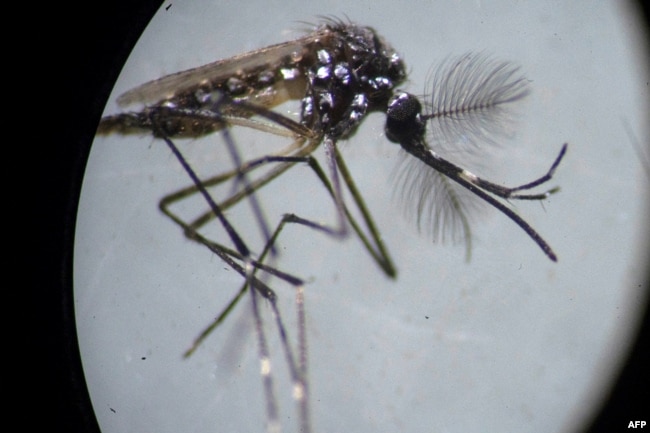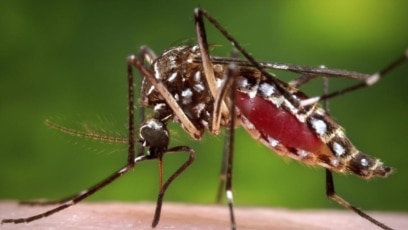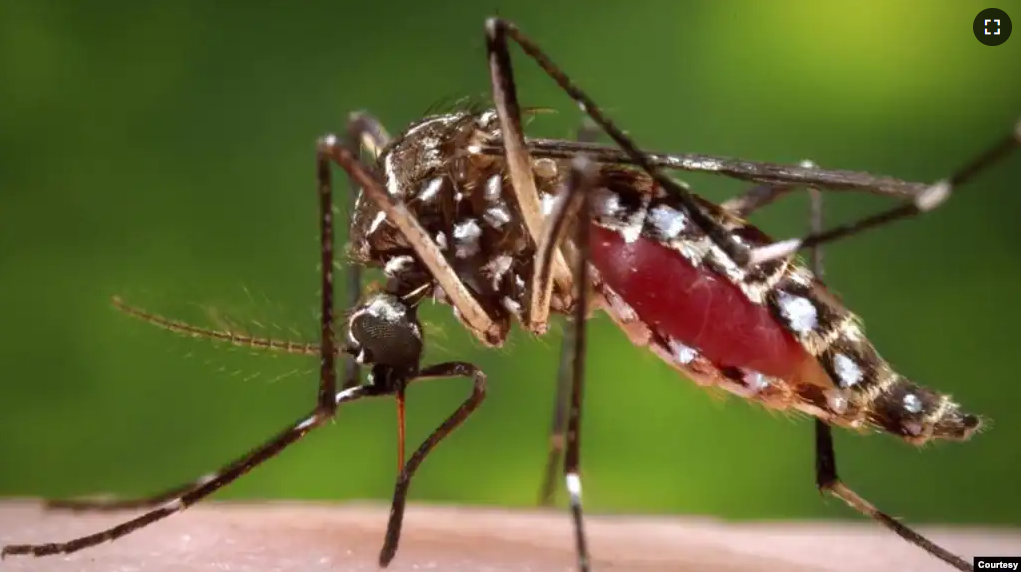A new study finds that some people attract mosquitoes much more than others, and it probably involves the way they smell.
The researchers found that people who attract mosquitoes the most produce a lot of certain chemicals on their skin. These chemicals are connected to the scent that attracts the mosquitoes.
Leslie Vosshall is one of the authors of the study and a neurobiologist at Rockefeller University in New York. She said, “If you have high levels of this stuff on your skin, you’re going to be the one at the picnic getting all the bites.”
For many years, there have been a lot of ideas about who is likely to get bitten more. But those ideas have not been supported by strong evidence, Vosshall said.
For the study, researchers designed an experiment to have people’s scents compete against each other.
They asked 64 volunteers to wear stockings around their forearms to absorb, or take in, the scent from their skin. The stockings were put in separate traps at the end of a long tube. Then, dozens of mosquitoes were released.
The mosquitoes came to some traps much more than others. The scientists did the experiment several times, always changing which stockings were competing against each other. At the end, they discovered a huge difference between stockings. The most attractive stocking was around 100 times more attractive to the mosquitoes than the last-place finisher.
The experiment used a kind of mosquito that spreads diseases like yellow fever, Zika and dengue. Vosshall said she would expect similar results from other kinds of mosquitoes. But additional research needs to be done to know for sure.

By testing the same people for over a year, the study showed that these big differences remain, said Matt DeGennaro, a neurogeneticist at Florida International University. He was not involved in the research.
“Mosquito magnets seem to remain mosquito magnets,” DeGennaro said.
The researchers found a common factor: Mosquito magnets had high levels of certain acids on their skin. People produce them in different amounts, Vosshall said. The healthy bacteria that live on the skin eat up these acids and produce part of the way our skin smells, she said.
The research could help find new ways to repel mosquitoes, said Jeff Riffell, a neurobiologist at the University of Washington who was not involved with the study. There may be ways to affect the skin bacteria and change the smell that attracts mosquitoes, he said.
However, he said that would be hard to do. Researchers also did the experiment with mosquitoes whose genes were changed to damage their sense of smell. But they still flew to the same mosquito magnets.
Vosshall said mosquitoes have ways to find us even if we change some conditions. “They have many backup plans to be able to find us and bite us,” she said.
I’m Andrew Smith.
Maddie Burakoff wrote this story for the Associated Press. Andrew Smith adapted it for VOA Learning English.
Quiz – Study: Your Smell Could Attract Mosquitoes

Start the Quiz to find out
_____________________________________________________________________
Words in This Story
attract –v. to bring attention to something or make something come towards another thing
scent –n. an odor or smell
picnic –n. a meal eaten outdoors, often in a park or other natural setting
stockings –n. tight-fitting covering for legs, feet, or arms, usually made of nylon
dozen –n. a group of twelve items
factor –n. a thing or element that has an effect on a situation or event
repel –v. to force or move away something coming towards an object
backup –n. alternatives, other options
